#lcmhc
Text
Adlerians view...
“Adlerians view most human problems as social in nature, they emphasize relationships within the family as our earliest and, perhaps, our most influential social system.”
Parents are a direct example to their children. Children grow up observing and believing that the values, beliefs and goals that their parents instill, are the right ones, moral ones and will help them grow into productive, superior and stable adults.
However, when a child grows up with a psychopathic parent, can the child prosper and become a valuable member of society?
According to an article by Scott Bonn, Ph.D. in Psychology Today, “psychopaths are unable to form emotional attachments… tend to be aggressive and predatory… view others as objects for their amusement… they lack empathy… often have disarming or even charming personalities. They are manipulative and can easily gain people’s trust. They learn to mimic emotions, despite their inability to actually feel them and will appear normal to unsuspecting people. Psychopaths are often well-educated and hold steady jobs.”
My father was all of these things, smart, charming and seductive, yet aggressive and mean. He appeared normal to the outside world, but behind closed doors, he was emotionally detached and demeaning towards my mother and siblings. He was always putting them down, calling them fat. He would laugh and say “Just kidding, I love you,” and buy a gift to make up for the hurt. Any friend he had was screwed over. He would lie, cheat and steal to get what he wanted by manipulating the system and defrauding his friends and the government.
As a young, naive, child, I looked up to my dad, he was my hero, he could never do wrong or let me down. He loved me, I was Daddy’s little girl. One day all of that changed. I was 10 years old, and my mother and I were watching my older sister play tennis at her high school, I remember it vividly. She took me for a walk and we were next to railroad tracks when she finally spoke. “Shannon, I need to tell you something and you cannot tell your baby brother, can you promise me?... Your father got into trouble and he will have to go away. He walked into a bank and saw a pile of money that wasn’t his and he took it. That was wrong and he got caught. Now daddy has to go away for a bit, but everything will be ok.” I was shocked, caught off guard, my father was going to jail, only bad people go to jail!
Many years later, I would bring this memory up to my mother and she would deny the conversation ever happened, calling me a liar and saying I make stories up. It was very confusing and frustrating, however, I learned in therapy that children can make up stories to understand and interpret a stressful situation. So, did it really happen, who knows… but my father did spend time in jail.
As I matured into my teenage years, I became distant and did not trust people. I found it difficult to make new friends and have real emotional connections. I was shallow and chose a lifestyle that was immoral and chaotic. My behavior and attitude reflected what I observed and perceived growing up,I actually believed that I was supposed to act like this because I was superior.
I started therapy in college when I began getting into trouble and having turmoil with my friends and in my relationships. I felt lost and wanted to have real friendships and be a valuable addition to society. I spent years focusing on my subjective experiences, dissecting the emotional and cognitive impact my father had on me and my resulting choices. I explored the dynamics between my siblings and my place in my family constellation. It took a lot of psychoanalyzing and maturity but I CHOSE to change, I chose to act differently. I altered my perspective and re-trained my thoughts. I practiced empathy and kindness. I learned to face my inferiority complex by raising my energy level and becoming strong-minded.
It was painful to recognize as an adult my father is not a hero. He is not kind and his thinking is abnormal. The things he says are not funny, they are abusive and racist, he is toxic. To be successful in life, a person must surround themselves with the kind of people that they would like to be. Being around good, ethical, honest and sincere people rubs off on a person by helping to influence their behavior. Having relationships and real friendships gives meaning to one’s life.
Corey Gerald. (2015). Theory and Practice of Counseling and Psychotherapy.Cengage Learning.
Bonn, S. (2018, January 18). How to tell a sociopath from a psychopath | Psychology Today. Psychology Today. https://www.psychologytoday.com/us/blog/wicked-deeds/201801/how-tell-sociopath-psychopath
0 notes
Text
Tom Holland shocked his fans last month when he announced he would take a year-long break from acting to look after his mental health after playing Danny Sullivan in Apple TV’s The Crowded Room. At first, it was difficult to see why — the show, following a young man accused of attempted murder as he reveals his dark past, was hammered in the reviews, and the series didn’t really seem to make a splash.
However, many reviews alluded to a big “twist” in Episode 7. Now that twist is common knowledge: Danny Sullivan is a Host in a Dissociative Identity Disorder system, and the crimes were committed not by him, but by his “alters.” Characters whom viewers thought were Danny’s friends and protectors were actually part of his internal life, and in later episodes, we see them “front,” or present themselves in Danny’s behavior. His accent, posture, and whole personality switches.
This wasn’t much of a twist if you knew where to look. The entire series is loosely based on the real-life case of serial rapist Billy Milligan, who pled insanity due to DID and was found innocent. Daniel Keyes’ book The Minds of Billy Milligan is even credited in the opening sequence, making the late twist a bit less shocking than intended.
What isn’t surprising, however, is how another fictionalized story of Dissociative Identity Disorder is tied with murder. From Dressed to Kill to Split, fictional examples of this disorder are often shown as dangerous, violent people, and The Crowded Room seems to perpetuate that.
“Whenever there's any kind of media that surrounds DID, I lead in with a cringe almost every single time now because it's so misrepresented in media,” Kelly Caniglia, MA, LCMHC, LMHC, CCTP, tells Inverse. Caniglia is a board member of An Infinite Mind, a non-profit that provides resources and advocacy for those living with DID.
Dissociative Identity Disorder, previously referred to as Multiple Personality Disorder, is a trauma response where an individual undergoes something so traumatic that memories, feelings, and traits are fragmented and spread across multiple identities. It’s a surprisingly common occurrence. “1.5% of this population is living with DID. That's more than people than there are redheads,” Caniglia says. “It is so much more common than people realize. And so this is a whole genre of human that we're essentially spotlighting and trying to make a quick buck on.”
To the show’s credit, it’s clear the minds behind The Crowded Room took a responsible portrayal of DID in mind. “We read Daniel Keyes' book, we read articles that align with the topic, we watched films and documentaries, we spoke to experts and specialists in this field,” Tom Holland told Inverse’s Hoai-Tran Bui during the series’ press junket. Caniglia does point to elements that show this research, like the depiction of Danny’s internal space as the eponymous “crowded room,” a space where alters convene and discuss what to do going forward. This internal space is something experienced by some (but not all) DID systems.
But it’s hard to get behind this show as a thoughtful, considerate reflection on this disorder when it’s treated as a “gotcha,” like a narrative twist that’s full of shock and awe, not something that is simply a part of who the character is. Still, Tom Holland defended the choice. “What's really important about our show is to understand that there's more to Danny than just his DID. We wanted audiences to get to know him as a human being before people make assumptions about this mental health issue, this affliction that he has,” he said.
To Caniglia, the twist was low-hanging fruit. “There are so many pieces to DID that are not widely understood,” she said, “So it's fascinating to those that don't know it and it's fascinating to think about, ‘What? This one body has 50 people inside of it? What does that look like? How does that work?’”
So what could this series do to portray this disorder in a more sensitive light? For Caniglia, it could be as simple as a disclaimer that this is one DID story, or any other way of using this show’s high-profile platform in order to spread awareness of just what DID is in our world beyond the violent stereotypes.
She also pointed out there are other works that are working against this archetype, like filmmaker Dylan Crumpler’s short film Petals of a Rose, or even Marvel’s series Moon Knight. It was still a violent portrayal of a DID system, but it showed a hero as someone living with DID. The population finally had positive representation they could look to: a literal superhero. Considering the past depictions, that’s a big step.
The Crowded Room is a gripping story that does attempt to show that DID is nothing more than a self-preservation technique, but it’s still perpetuating harmful stereotypes, even if it’s based on a true story.
“Representation is so important,” Caniglia says, “And this population is already so marginalized that though this piece is entertaining and has points of great execution, it still reinforces the rhetoric of people with mental illness, in this case DID, are dangerous.”
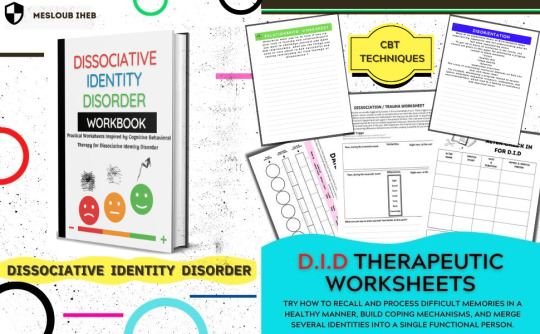
#dissociative identity disorder#dissociative fugue#dissociative amnesia#dissociation#actually dissociative#dissociative disorder#dissociative system#other specified dissociative disorder#dissociative personality disorder#complex dissociative disorder#dissociative vent#did alter#did i hallucinate that#did disorder#actually did#did system#did community#did osdd#did positivity#osdd problems#osdd 1a#osdd#actually osdd#osdd alter#osdd system#osddid#osdd positivity#osdd memes
45 notes
·
View notes
Note
Idk if this is something you feel able to give advice on, but Seeing Wolves Where there are No Wolves is a big comfort to bc I know I too need help & its good to know that it's out there, but I don't know how to start. Like how the hell do you choose a therapist?! I google and still dont get the difference between lpc vs psyd, let alone what questions to ask or how to tell if they're a good fit. Feel free to say pass, but if you have tips I would so greatly appreciate it. thanks and sending love
hello, anon!
im actually able to help with this! im good at finding counselors! (and dentists!)
so, there are a couple of ways to go about this, but the truth of the matter is that if you've never been to therapy, or you're new to an area and are searching for a counselor, you may have to shop around a bit before you find the right fit. This can be emotionally taxing, so seeking out the right one will take some refining.
Acronyms To Know:
MSW: Master of Social Work
M.Ed: Master of Education / M.S.Ed: Master of Science in Education
M.S or M.A: Master of Science and Master of Arts, respectively.
LPC: Licensed Professional Counselor
LMHC: Licensed Mental Health Counselor
LCPC: Licensed Clinical Professional Counselor
LPCC / LCMHC: Licensed Professional Clinical Counselor of Mental Health / Licensed Clinical Mental Health Counselor
LMHP: Licensed Mental Health Practitioner
MFCC: Marriage, Family and Child Counselor
LCSW: Licensed Clinical Social Worker
DR is someone with a doctorate while MD is for Medical Doctor, and a Ph.D is someone with their doctorate of Philosophy - and all of these are people that are capable of obtaining certifications and licenses in a variety of counseling types, what it means to you is how much time this person has spent in school. In my experience, how much time a person has spent in school is not super indicative of how helpful they are, and it's much more informative to find out how many years they have spent in the field, and what their listed specialties are.
If you've been to counseling before, you may already be aware of what modes of therapy work best for you (Talk Therapy, DBT, CBT, EMDR, etc), but if you found Seeing Wolves to be comforting and that is the kind of therapy you're looking for, you will want to seek out a counselor that specializes in CBT (Cognitive Behavioral Therapy), DBT (Dialectic Behavioral Therapy) and/or Trauma Focused Therapy.
I highly recommend seeing counselors that have at least 5 years in the field, and in particular, at least 5 years of training or experience in dealing with trauma focused therapy. You may see counselors listing years of experience in rehabilitation centers with people who have substance abuse disorders, or working with veterans in VA hospitals and such - these are good indicators that they are aware of, and well practiced in trauma-informed approaches of therapy, even if they aren't specifically licensed or advertised as that.
Remember that your initial meeting with a new counselor is about you sussing THEM out, to see if they're a good fit. It's okay if you don't click right away, or if the vibes are off and you're like 'hmm :T i think im gonna keep looking.'
When picking a counselor, read their bios and work histories - determine if their field work feels relevant to the skills you want in a counselor, and look out for red flags, like 'faith-based approaches' as this can either be PRECISELY what you're looking for, OR it can be extremely limiting and unhelpful if the faith they're basing their practice on is only one, specific faith that does not align with yours.
That's all the advice I can really give on this without knowing what you're specifically struggling with. If you feel comfortable divulging more to me, I can help you narrow down your search more, but I hope this is helpful!!
#ask#anon#melanie answers stuff#psychology#mental health#it's a lot to keep track of i know#i hope u find what you're looking for!#you're v brave for starting the journey!!!! im proud of u!!!!!!
9 notes
·
View notes
Text
Vermont’s Best Therapy Center for Children and Adults
Expert Neurofeedback Therapy
Neurofeedback therapy, offered by Dr. David Helfand Psyd at LifeWise PLLC, is a non-invasive tool to retrain the brain. Similar to physical therapy for the brain, neurofeedback therapy enhances control, flexibility, and resilience. Scientifically proven to assist with various symptoms and medical issues, neurofeedback can now be done remotely from home. It targets issues like executive functioning, anxiety, panic attacks, sleep disorders, ADHD, and peak performance.
An additional modality, NeuroMeditation combines meditation with neurofeedback, optimizing results. Train your brain, boost focus, and awaken higher functioning areas with this innovative therapy.
Advanced Brain Mapping
qEEG Brain Mapping Expert Analysis provides a multipoint inspection of your brain. Think of it like a musical tuner for your brain. A Brain Map (or qEEG) measures brainwaves, revealing areas needing support and those functioning well. This information aids in improving relationships, career goals, and overall life fulfillment. The appointment takes about an hour, with immediate recommendations available after the test, and a full report ready in about four to six weeks. The test monitors brainwaves without sending signals to the brain.
Play Therapy for Kids: Understanding and Healing Through Play
In child counseling, identifying the root cause of issues is crucial. Child Play Therapy, offered by Anna Helfand LCMHC, child behavioral therapist at LifeWise, focuses on children’s mental and emotional well-being through play. Here’s a concise overview:
Healthy Development: Observing a child’s play reveals insights into their developmental progress. Themes common to specific age groups help assess growth.
Grief Work: Children process loss differently. Providing a safe space for emotional expression aids in healthy coping and future development.
Depression: Play allows children to explore and process emotions indirectly, making it a valuable tool for addressing sadness.
Anxiety: Signs of anxiety emerge in play scenarios. Using play metaphorically helps teach healthier stress management.
Anna Helfand LCMHC, an expert play therapist, combines gentleness with firm support. Her extensive training in family and child counseling ensures a safe and transformative experience for families in Vermont and the surrounding communities.

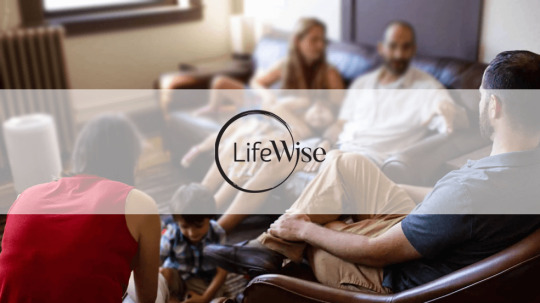
LifeWise, PLLC
190 Eastern Ave - Suite 206
Saint Johnsbury, VT 05819
[email protected]
(802) 232-4468
www.lifewisevt.com
#couples counseling#neurofeedback therapy#marriage retreat#intensive couples therapy retreats#family therapy#child play therapy
1 note
·
View note
Text
Megan Simpson MS, LCMHC, BCN
New Post has been published on https://solsticeeast.com/dvteam/megan-simpson-ms-lcmhc-bcn/
Megan Simpson MS, LCMHC, BCN
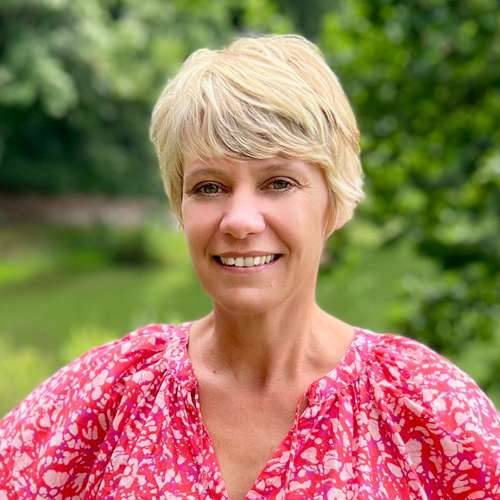
0 notes
Text
call behavioral health services so can get me to a psychiatrist at the the request of my social worker, dr, lcmhc for my drs office, also. max... -> ring ring -> click -> busy signal like someone took it off the hook
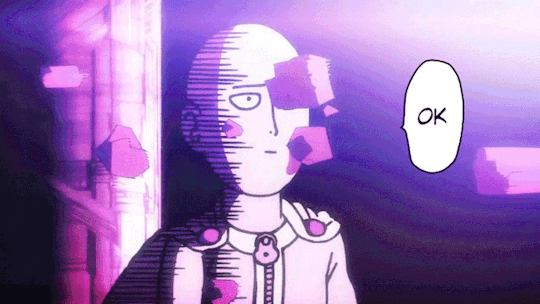
1 note
·
View note
Text
Alcohol Use, Women, and COVID-19
Alcohol Use, Women, and COVID-19
By Annette T. Meadows MS, LCMHC, LAC, Clinical Director, Recovery Works Merrillville
At the beginning of the coronavirus pandemic in early 2020, experts predicted an increase in mental health issues related to the various related pandemic stressors. Among mental health professionals, major sources of concern included stress related to:
Shelter-in-place orders
Persistent fear of the…
View On WordPress
0 notes
Text
Ethical Issues in Therapy
When reading about “ethical issues related to multiple relationships in counseling practice,” I can't help but look back on my own childhood.
It is unethical for a therapist to accept the treatment of a child who they have a personal relationship with the parents. Informed consent is necessary or it becomes an ethical matter. Confidentiality is imperative when working with clients and making them feel safe. If a client does not feel safe enough to disclose information to the therapist, there is blatantly no therapist and client centered relationship. The therapist has a moral obligation to the client to refer them out to another therapist.
At 14 years old, I was a Baker Acted. I woke up in the hospital with my family by my side, we were all understandably scared and angry. I was transferred from the emergency room to SandyPines Residential Treatment Center in Jupiter, FL. The doctor that treated me had multiple relationships with myself and my family. Prior to my stay in the treatment center, our families would spend weekends together, go fishing and deep sea scuba diving. This personal relationship compromised our therapist - client relationship and devalued anything the therapist might have tried to implement.
This multiple relationship was harmful and unethical. Since the therapist was a family friend and close with my parents, she was the last person I wanted to confide in. It’s unfortunate, because if that therapist acted ethically at that time, I may have had a better chance of being diagnosed earlier and not suffering for almost 25 more years with undiagnosed mental illness. I may have utilized the treatment instead of rebelled against it.
What do you think of a parent using their friend as a therapist to intervene with their “disturbed” child?
0 notes
Text
Positiv auf Jesus getestet Gott, Christus shirt

Positiv auf Jesus getestet Gott, Christus shirt .Heather Gallagher, LCMHC, LCAS, an addiction therapist at the Apart from…,I will love this University of North Carolina’s Alcohol and Substance Abuse Program, says her clinic has seen a rise over the last year in both new patients and returning patients who have resumed drinking during the pandemic. She believes the surge is likely due to a combination of factors, including isolation, easy access to alcohol, and the abundance of drinking-centered virtual events from Zoom happy hours to potentially awkward first online dates. She also suspects that “a rise of co-occurring mental health symptoms,” like anxiety and depression and “trying to cope with things we’ve never had to cope with before, like a full-time job, plus a significant relationship, plus teaching kids from home,” are driving up drinking rates as well.Positiv auf Jesus getestet Gott, Christus shirt, hoodie, sweater, longsleeve and ladies t-shirt Positiv auf Jesus getestet Gott, Christus shirt .There’s another distinct reason the Apart from…,I will love this pandemic may be pushing people to drink. In an October 2020 paper published in the Journal of General Internal Medicine, authors Dawn E. Sugarman, Ph.D. and Shelly F. Greenfield, MD, MPH argue that while alcohol use is a common coping strategy for stress and there have been historic increases in alcohol use following other traumatic events like September 11, this collective pain is different.You
Read the full article
0 notes
Text
Essentials of the Clinical Mental Health Counseling Profession: Including the Key Documents of the Profession and a Career Development Guide
Essentials of the Clinical Mental Health Counseling Profession: Including the Key Documents of the Profession and a Career Development Guide
Price: (as of – Details)
If you’d like to gain a greater understanding of the clinical mental health counseling profession, read this book.
Why the profession of clinical mental health counseling is crucial to public health (Introduction)
What distinguishes Licensed Clinical Mental Health Counselors (LCMHCs) from other mental health professionals (Chapter 1)
Why The Clinical Mental Health…
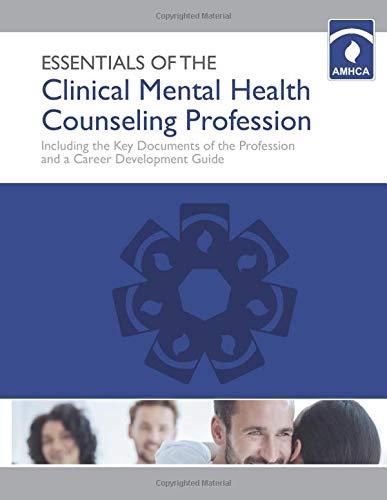
View On WordPress
0 notes
Text
Joey Bane LCMHC-A
New Post has been published on https://solsticeeast.com/dvteam/joey-bane-lcmhc-a/
Joey Bane LCMHC-A
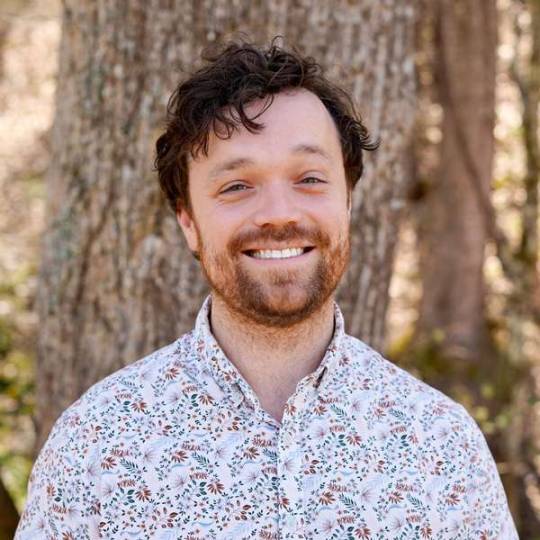
Joey, originally from the small town of Sidney, Illinois, earned his Master degree in Clinical Counseling with a certificate in Addictions Studies from the University of Saint Mary’s University of Minnesota. Prior to coming to Solstice East, he worked in a variety of therapeutic residential settings, including a wilderness therapy program for teens and young adults. Joey also brings counseling experience from his work with adults who have struggled with alcohol and substance use disorders, as well as severe and persistent mental Illnesses. He is passionate about helping others understand and create space for their full potential. He values building community through connection with others, being outdoors, listening to live music, and traveling the world.
0 notes
Photo
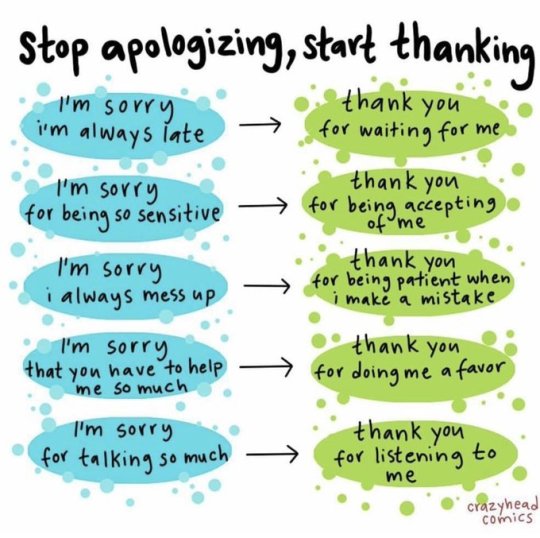
Erasing the #MentalHealth Stigma in the Black community https://t.co/XpYfpbDBTx... Wed. Nov. 18th at 7pm EST Join the discussion https://t.co/CbVvV6uICv Duane Y. McClure, DM, LCMHC, LCPC - IG: @DrDuaneM (https://t.co/1ZvBIWAYer) #blackmentalhealthmatters https://t.co/f7h2PW5L6x
3 notes
·
View notes
Photo
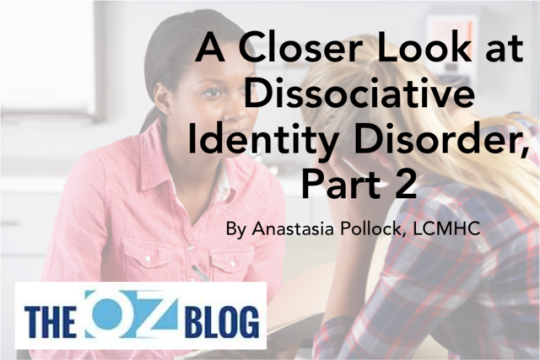
A Closer Look at Dissociative Identity Disorder, Part 2
The Oz Blog with Anastasia Pollock, LCMHC
It is readily apparent early on in treatment that my clients with Dissociative Identity Disorder (DID) are some of the most resilient, intelligent, and creative people on the planet. No matter how many people I treat, I am always left in awe of the strength and resilience of the human body and spirit. Of course, Bri’s case is no different. Read More!
2 notes
·
View notes
Text
“Is mindfulness keeping your conscious thoughts positive?”
Does working on your thought process and bringing in repressed memories to work through, mean that we can change our thinking to positive and we will be more mindful?
Reading about and listening to the lecture on defense mechanisms was not only intriguing, but quite fun. I enjoyed comparing the defense mechanisms to my own personal life (and that of my husband), it really sparked a thought that has been nagging me for days!
Do I use the reaction formation defense mechanism to protect my own ego and self esteem from the judgments and negativity of others? Reading about this defense mechanism made me question my own current state of being. After so many years of my own psychoanalysis, did I alter my destructive, repressed thinking and create a new defense mechanism within myself? Am I really the positive, cheerful person I portray outwardly and worked so hard to become? Or am I exaggerating my friendliness and empathy in order to keep people from knowing the authentic me?
I tell my son that he can look someone in the eyes, smile, and it could totally change their day for the better. I love doing this, it really gets me off when someone smiles back. However, am I doing this to be kind or am I going out of my way, projecting kindheartedness, to make other people feel good so I can feel good about myself? Is this even a bad thing?
Not all defense mechanisms are negative. Defense mechanisms are implemented when one may be in a stressful or uncomfortable situation, for example, being in public. Social anxiety can absolutely result in a reaction formation defense mechanism. Utilizing this defense mechanism myself, allows me to be in the moment, rather than stuck in my head with strange, cynical thoughts.
Another great example of a positive defense mechanism is sublimation. Taking out one's inconsistent feelings, aggression or destruction, and turning that into something upstanding is quite a mechanism.
My husband, Eric's, father left his family when he was only six years old. This affected him very much and I do believe he has trauma. Although he attended therapy, his real outlet was soccer. He worked hard, practicing everyday, giving his all and pouring his heart into the game. Eric became a remarkable soccer player eventually playing on scholarship for college, becoming the first Freshman to ever play varsity soccer at his college and becoming the first sophomore ever, and still till this day, to be a varsity team captain. He took pride in his athletic career, which got him through an extremely onerous time. It must have been very difficult when Eric’s father left his family and never came back, however, he took that anger and put it towards glory. That makes me look up to him so much. Especially since I picture myself so weak at that time in my life.
Eric and I are individually very different. Our family's values are similar because we are Jewish, and Judaism is very much a culture then a religion to us. However, our families are especially different in morals and ethics, which is most likely a huge variable in each of our coping methods and behaviors.
I am very much looking forward to diving deeper into psychoanalysis and learning the skills taught to manage stressors. Although I feel that I have come a long way in my journey, therapy is an ongoing process and I intend to use what I learn to make myself even better!
0 notes
Text
Audrey Tanner LCMHC, LCAS
New Post has been published on https://solsticeeast.com/dvteam/audrey-tanner-lcmhc-lcas/
Audrey Tanner LCMHC, LCAS
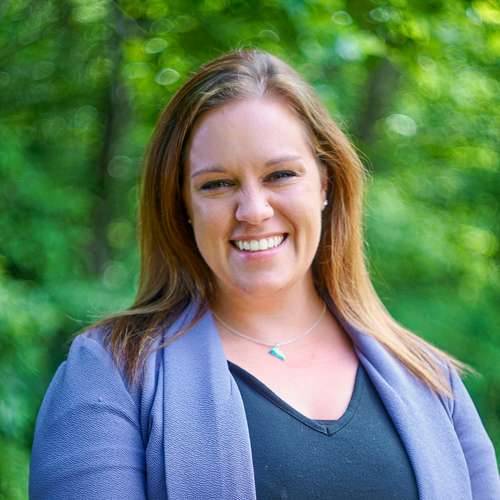
Audrey has over a decade of counseling experience in different settings including outpatient, intensive outpatient, in-home, partial hospitalization, telehealth and residential. She has especially enjoyed working with young adults and teenagers as they navigate how to have healthy relationships and discover who they are. Audrey has a passion for working with those struggling with substance abuse and with individuals healing from trauma and complex trauma. She is dually licensed as a Licensed Clinical Mental Health Counselor and a Licensed Clinical Addictions Specialist and is trained in Cognitive Behavioral Therapy, Trauma-Focused Cognitive Behavioral Therapy, Dialectical Behavior Therapy, EMDR, Emotionally Focused Family Therapy, and Motivational Interviewing. She relies heavily on a person-centered approach while also appropriately challenging her clients.
Prior to starting her career, Audrey spent her undergraduate years at North Carolina State University and then went on to earn her Masters in Mental Health Counseling at the University of Tennessee – Knoxville. After practicing in Knoxville for a short time, Audrey fell in love with the mountains and decided to move to western North Carolina! In her free time, Audrey loves to get outdoors. She is an avid hiker and most weekends she is hitting the trails with her dog, Finn. Chances are, her clients will experience her joining them on a hike or on a camping trip while they are in the program! She also loves reading, photography, and traveling.
0 notes
Photo
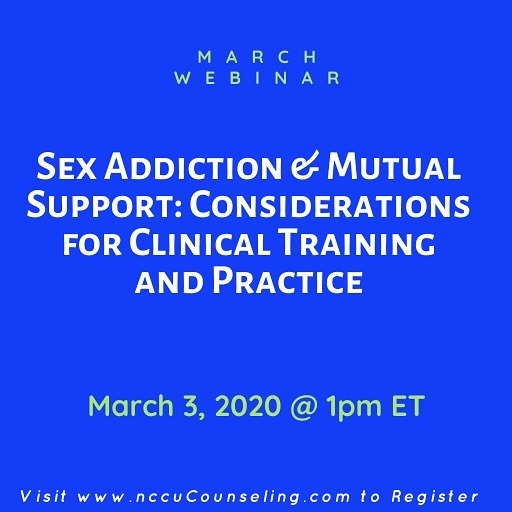
WEBINAR: Sex Addiction and Mutual Support: Considerations for Clinical Training and Practice March 3, 2020 at 1:00pm ET In this webinar Kyla M. Kurian, PhD, LCMHC and Latasha Y. Hicks-Becton, Ph.D., LCMHC, LCAS will give a brief overview of process addictions, specifically, sex addiction, and they will discuss the potential impact of attending mutual support groups as a part of a client’s recovery. They will also have 2 members of the Sex Addict Anonymous fellowship talk about their experience in the program and answer questions. Hicks-Becton and Kurian will also share lessons learned from a recent visit to an “open to clinicians only” meeting of a mutual support group for sex addiction. https://sexaddictionandmutualsupport.eventbrite.com/ https://www.instagram.com/p/B9O4L10J4ay/?igshid=1jy55jscof0f4
0 notes